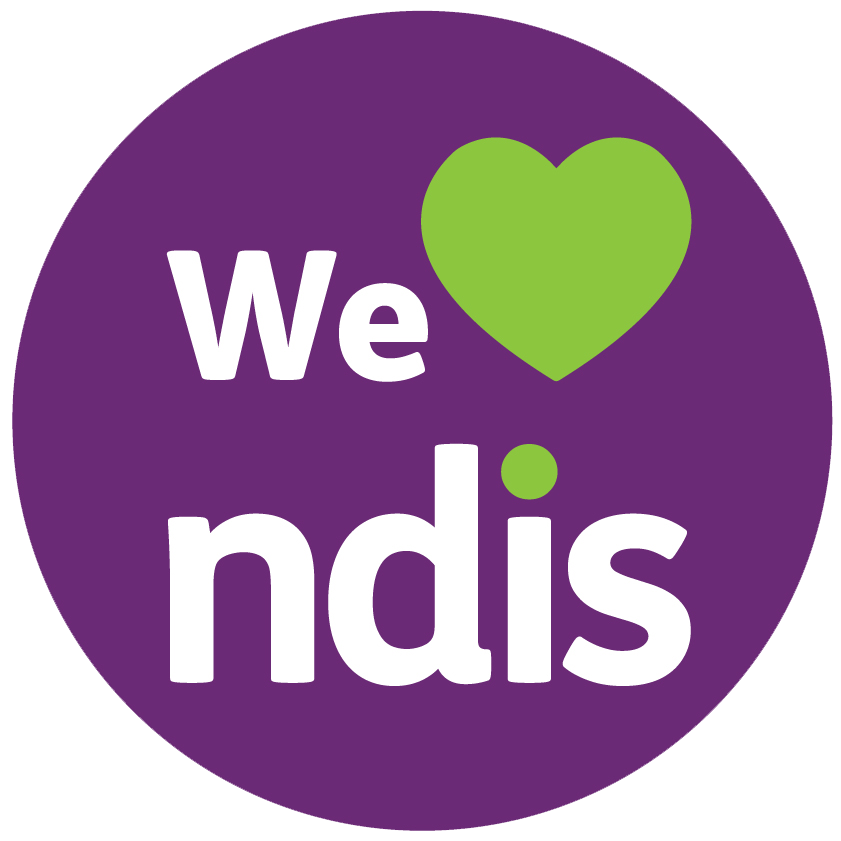Blogs

Have you ever typed in “Occupational Therapist near me” and disappointed with the search results? Maybe it’s time to consider online occupational therapy sessions through telehealth. The Benefits of Telehealth for Occupational Therapy Telehealth has revolutionised the way we access allied healthcare, making it easier to connect with many allied healthcare specialists , including Occupational Therapists , from the comfort of your home. With telehealth, location is no longer an issue, and makes it easier for you to find an Occupational Therapist who perfectly matches your needs, even if they’re not in your local area. One of the biggest advantages of telehealth is its convenience. You can schedule sessions that fit your routine, eliminating the need for travel, which can be especially beneficial if you have mobility challenges or the lack of transportation. Telehealth is also helpful if you are suffering from severe mobility impairments, chronic pain, immunodeficiency, or recovering from major surgery that is limiting your mobility. Also, telehealth can offer a more personalised experience. During online sessions , Occupational Therapists can assess your home environment in real time, giving them insights that they might not gather during in-person clinic visits. This allows them to tailor their recommendations to your specific living situation, enhancing the effectiveness of your therapy. What to Look Out For in an Occupational Therapist Finding the right Occupational Therapist is crucial for successful treatment. Here are some key factors to consider: Experience: Ensure that the Occupational Therapist has experience in treating your specific condition. You can usually request this through making a referral or by going through a national allied healthcare provider, like Vivir Healthcare who has several Occupational Therapists working for them. An Occupational Therapist with a strong background in the area you need support in is more likely to provide effective care. Communication Style: Effective communication is vital in any clinician and client relationship. During an initial consultation, pay attention to how the Occupational Therapist listens to your concerns and explains their approach. You should feel comfortable and confident that they understand your needs and can help you reach your health goals. Availability and Flexibility: It is important to find an Occupational Therapist whose availability matches your schedule. With telehealth, there is often greater flexibility in scheduling sessions, so be sure to provide your preferred availabilities when completing your referral. Knowing Your Health Goals Before starting your search for an Occupational Therapist, it’s important to clearly define your health goals. Are you looking to regain independence after an injury, or seeking support in modifying your home so you can continue to live in it safely as you get older? Do you need support in managing a chronic condition? Knowing your health goals will not only help you find an Occupational Therapist with the right expertise but also ensure that the therapy sessions are focused and effective. Once you’ve identified your goals, communicate them clearly. This will help them tailor their approach to meet your specific needs. A good Occupational Therapist will work collaboratively with you to develop a personalised treatment plan that aligns with your objectives. By engaging in telehealth, you will more likely find an Occupational Therapist near you that will have a positive impact on your health and well-being. By considering telehealth , you expand your care options and gain the flexibility to choose an Occupational Therapist who truly meets your needs. Want to learn more about Vivir Healthcare’s Telehealth services? Click here

In recent years, telehealth appointments in Australia have emerged as a convenient and accessible way for people to access quality healthcare services. This innovative approach is especially significant in the field of allied healthcare, where providers like us at Vivir Healthcare can deliver physiotherapy, occupational therapy, and other essential allied healthcare services to our clients online. What is a telehealth appointment? A telehealth appointment is a healthcare consultation that does not need be conducted face to face but instead uses digital communication tools – commonly a phone call, or online using a video conferencing tool to have the appointment. This method of seeking healthcare support and advice has grown to be very popular because not only is it beneficial for individuals who may not live close by to a healthcare facility that offers the support they need, but it also allows the right clinician to be available to best support the individual reach their goals. Telehealth appointments are also beneficial for individuals with mobility issues, are vulnerable to illness or anyone seeking the financial convenience and flexibility of receiving care from home. Online physiotherapy sessions Our Physiotherapists can conduct online physiotherapy sessions where visiting clients in person may not be possible. As per any face-to-face physiotherapy appointments, our physiotherapist will complete an initial consultation which includes gathering information about the individual’s medical history, current symptoms, and concerns. With the support of the individual’s family member or carer, holding the laptop or tablet that is being used for the video call, our physiotherapists will also complete a visual assessment online by observing the individual’s movement, posture, and function. The final part of the assessment will include completion of some outcome measures using digital forms or standardised tests which are used to document and track the individual’s progress. The initial consultation is also when our physiotherapists will set realistic and achievable goals in collaboration with the individual so that the treatment or injury management plan can be personally tailored and is aligned to the individuals’ goals. Following the initial online physiotherapy consultation, follow-up sessions will be scheduled with the client via telehealth. During these sessions, the physiotherapist will go through personalised advice on self-management, treatment options for pain and may even provide demonstrations of exercises appropriate for the individual to do. A written home exercise programme will also be given to the individual which they will be able to follow in their own time. Regular follow-up telehealth appointments will also be scheduled during which our physiotherapist can monitor exercises real time via video and provide feedback, or if required modify the physiotherapy exercises to suit the client. As the individual makes progress, the exercise regime would be adjusted to ensure the exercises are suitable for the level the individual is at. Our physiotherapist will continue to schedule regular online physiotherapy sessions until the individual reaches their goal and feels confident in their ability to complete self-management strategies by themselves. Online occupational therapy sessions Our online occupational therapy sessions work very similarly to our online physiotherapy sessions with the goal to best support the individual in maximising the individual’s functional independence at home so they can continue with their daily activities as independently as possible. With the use of video telehealth, the occupational therapist can review the client within their home environment and make an assessment on how this may be placing them at risk or limiting their independence – for instance, a hard to access shower or steps without rails, and make recommendations for home modifications based off some simple measurements and photos. Occupational therapists can also make an assessment of the person and if any equipment would assist their safety, independence or quality of life at home. For example they may observe the individual having difficulties standing up or sitting down from an armchair and may lead them to recommend a riser or lift chair. In the case of assessment of equipment provisions, it is really important for the individual to actively trial new equipment that would benefit them to ensure it really meets their needs and alternatives are considered. This can also be done via an occupational therapy telehealth trial session that includes the individual, their family or carers, the occupational therapist calling in via video call and a representative from an equipment supplier. This can be arranged either at home (if the client is house bound or you want to check a scooters ability to manage the local hills) or at a showroom (so the individual can try out a range of lift chairs). With the assistance of collaborative equipment supplier these trials are just as effective via video call as they are face to face. Telehealth appointments with in-person support We understand that technology can be challenging for some, which is why we've designed our Telehealth To You (TH2U) program . This telehealth service ensures individuals receive the best of both worlds: online healthcare appointments with our clinicians, supported by in-person assistance from our Allied Healthcare Assistants. In this program, our clinicians will conduct appointments virtually and one of our Allied Healthcare Assistants will visit the individual at home during the telehealth session and will bring a device that is internet-connected. They will offer technical support to help navigate the virtual appointment and provide clinical assistance to the leading clinician as needed, including taking measurements.

In Australia, it is reported that 1.2 million Australians have a communication disability. And with communication a fundamental human right, we feel that it is important to raise awareness of the communication challenges people in our community face and how our dedicated team of speech pathologists at Vivir Healthcare empower people to ‘communicate their way’! To celebrate Speech Pathology week coming up this August, our Speech Pathologists have provided fascinating insights on the role of a speech pathologist and how they support their clients and their families with their communication challenges – no matter their age. The role of a Speech Pathologist in supporting people with communication challenges is important. Speech Pathologists, also known as Speech-Language Pathologists (SLPs) or Speech Therapists, are skilled allied health professionals who specialise in the assessment, diagnosis, and treatment of communication and swallowing disorders. They work with individuals across all age groups to address a wide range of issues, from speech and language development in children to communication challenges following stroke or injury in adults. Their goal is to help individuals improve their ability to communicate effectively, which is crucial for social interaction, education, independence and overall quality of life. There are some common misconceptions about speech pathology: “Speech Pathologists only work with speech problems.” - In reality, Speech Pathologists address a wide range of issues, including language, cognitive-communication, and swallowing disorders. “Only children need speech therapy.” - People of all ages can benefit from speech pathology services. “Speech Therapy is just about talking.” - Speech Therapy encompasses a wide range of areas, including listening, understanding, reading, writing, and using language effectively. “Once therapy starts, progress will be quick.” - Therapy is a process that takes time, patience and consistent effort from both the client and the Speech Pathologist. Speech Pathology interventions differ between children, adults, and the elderly. Across different age groups, communication challenges vary significantly and speech pathology interventions as a result are tailored to the specific needs of each age group. In children, the common issues our speech pathologists address include speech delays, articulation disorders, stuttering, and language development disorders. Children might struggle with forming words correctly, using language appropriately, or understanding others. Their therapy sessions often involve play-based activities and interactive exercises to engage them and make learning fun. Early intervention is key for this age group, focusing on developing foundational speech and language skills. Adults can face communication difficulties due to health conditions or injury like stroke, traumatic brain injury, or progressive neurological disorders such as Parkinson's disease. These can result in aphasia (difficulty with language), dysarthria (difficulty with speech), and cognitive-communication disorders. Age-related conditions such as dementia and hearing loss can also impact communication. Interventions for adults might include more structured speech exercises aimed at relearning skills or compensatory strategies to manage communication challenges. Therapy is often more intensive and specific to the type of communication disorder they are experiencing. For elderly people, speech therapy may focus on maintaining their current abilities and slowing the progression of the disorder. Techniques often include memory aids, cognitive exercises, and strategies to enhance communication despite physical limitations. Family support plays a key role in supporting the speech pathology interventions for their loved ones. Family members play a crucial role in supporting speech pathologists and the overall success of speech therapy on their loved ones. Their involvement can provide emotional support, reinforce strategies learned during therapy sessions, and create a supportive environment for practice. For adults and the elderly, family members can assist with therapy exercises and help apply communication strategies in real-life situations, ensuring continuity and effectiveness of treatment. For children especially who participate in speech therapy sessions, parents can integrate language-building activities into daily routines. Our speech pathologists recommend that following five strategies for parents to support their children's communication skills: Read Aloud: Reading to your child regularly helps build vocabulary and language comprehension. Engage in Conversations: Encourage your child to express themselves, ask questions, and describe their experiences. Play Together: Use playtime to introduce new words and concepts in a fun, relaxed setting. Model Good Communication: Demonstrate clear and effective communication by speaking slowly, clearly, and using proper grammar. Use Positive Reinforcement: Praise your child’s efforts and successes to build their confidence and motivation. Speech pathologists work with other allied healthcare professions to provide the best care to their clients. Speech Pathologists often collaborate with a multidisciplinary team to provide holistic care. For instance, they may work with Dietitians to address issues related to swallowing disorders, such as dysphagia . Dietitians can recommend appropriate dietary modifications and nutritional supplements while Speech Pathologists focus on improving swallowing function. This teamwork ensures that clients receive comprehensive care that addresses all aspects of their health and well-being. Speech Pathologists and Occupational Therapists (OTs) also often team up to provide comprehensive care for children, especially those with complex needs. Speech Pathologists assess communication skills, speech, language and swallowing, whilst OTs evaluate motor skills, sensory processing, and daily functional abilities. Together, they get a full picture of the child’s needs. They set shared goals, like improving social communication and sensory regulation to ensure the child’s therapy session addresses multiple developmental areas. By working together, they provide well-rounded support that enhances their development and empowers families to support their progress and growth. Progress in Speech Pathology is measured through regular assessments and observations. Success is often determined by achieving specific, individualised goals set at the beginning of therapy. These might include improvements in speech clarity, language usage, or swallowing function. The timeline for improvement varies greatly depending on the nature and severity of the disorder, the age of the client, and their level of engagement in therapy. Generally, clients can expect to see gradual improvements, with milestones being deservingly celebrated along the way! Our Speech Pathologists love what they do One of our Speech Pathologists has shared their client success story which demonstrates the integral work Speech Pathologists around the world do. “A referral was received to see a woman with “swallowing changes” due to her Parkinson’s disease . On initial assessment, the client spoke of rapid change to her voice, she had developed stutter like speech behaviours. She was finding it was getting increasingly difficult to communicate, and people had difficulty understanding her. When eating, she felt like foods took a long time to go down. On our initial appointment, I talked through simple diet modifications that would improve her swallow safety. Knowing the importance of food and quality of life, I talked her through how we can modify her favourite foods – for example using slow cooking techniques, ensuring foods are well sauced, eating lots of fish. In our second appointment I introduced her to techniques that aimed to improve her fluency (stutter free speech) and her voice strength. By the end of our third session, the client was able to apply these strategies for up to 30 second speaking tasks. I played her a recording of her voice at initial assessment, and a recording of her voice at the third session. The look on her face as she listened and heard the difference – it made me heart sing. I knew she felt moved by the change. It is why I love what I do.” If you are looking for a Speech Pathologist to support you or your loved ones, please get in touch with us today by filling out our referral form ! Our Speech Pathology team can be reached all around Australia through our telehealth service – so no matter where you call home or if you have trouble travelling to visit a Speech Pathologist in person, our Speech Pathologists will be available to come to you.





